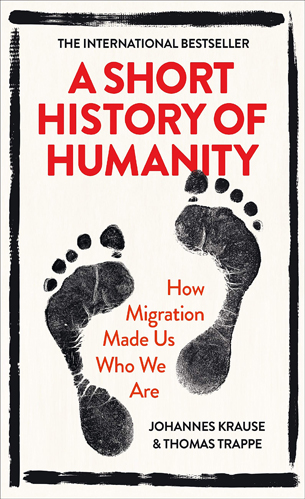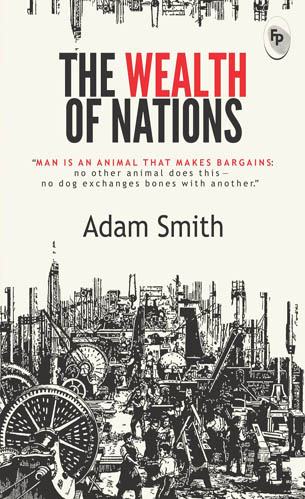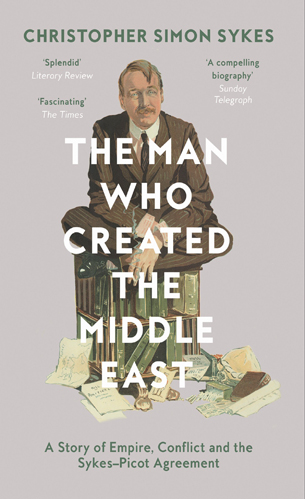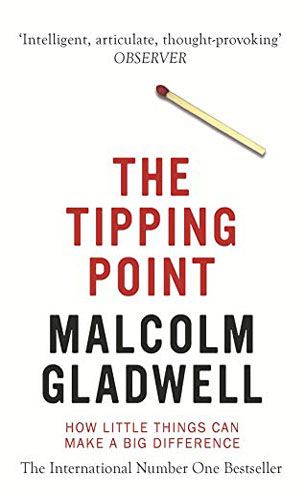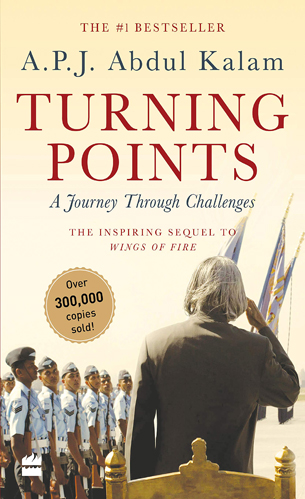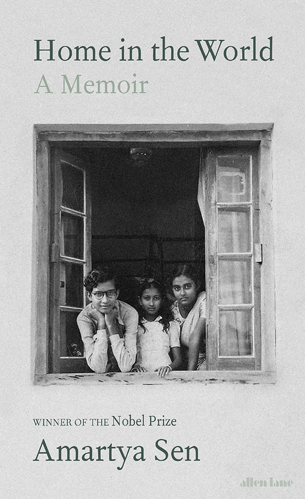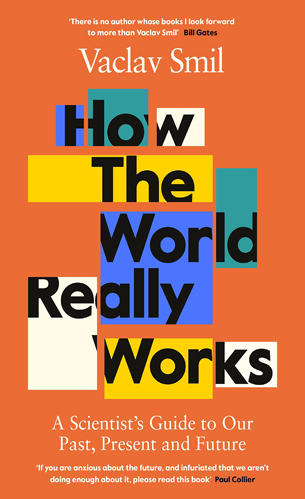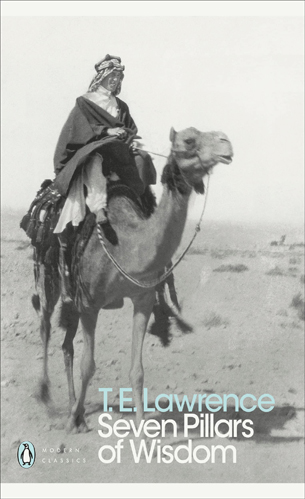Category
- Discounted Books
- English Book Bundles
- University Magazines
- சிறுவர்களுக்கான புத்தகங்கள்
- Children Books
- English Books
- Current Affairs
- Military & Intelligence
- Short Stories
- Fiction
- Poetry
- Environment & Nature
- Science
- Medicine
- Linguistics
- Atheism & Agnosticism
- (Auto)Biography & Memoir
- Business & Management
- Creativity
- Economics
- Education & Research
- Health & Nutrition
- History
- Humor
- Love & Relationships
- Parenting
- Personal Development
- Personal Finance
- Philosophy
- Politics
- War
- Psychology
- Religion & Spirituality
- Society & Culture
- Sports
- Travel & Adventure
- Technology & the Future
- True Crime
- Women Empowerment
- தமிழ் Books
- Book Bundles ( தமிழ் )
- சட்டம்
- இயற்கை
- கட்டுரை
- கணிதம்
- பயணக்குறிப்புகள்
- விவசாயம்
- அரசியல்
- ஆரோக்கியம்
- உளவியல்
- புனைவு
- காதல் மற்றும் உறவு
- சமூகவியல்
- சுயசரிதைகள் மற்றும் நினைவுகள்
- சுயமுன்னேற்றம்
- தத்துவஞானம்
- தொழில்நுட்பம் & எதிர்காலம்
- பொருளாதாரம்
- போர்
- பணம்
- மதம் & ஆன்மீகம்
- வணிகம் & மேலாண்மை
- வரலாறு
- விஞ்ஞானம் & பிரபல அறிவியல்
- விளையாட்டு
- சினிமா
- கவிதைகள்
- குழந்தை வளர்ப்பு
- குற்றம்
- மருத்துவம்
- மொழி
Product categories
- Children Books
- Discounted Books
- English Book Bundles
- English Books
- (Auto)Biography & Memoir
- Atheism & Agnosticism
- Business & Management
- Creativity
- Current Affairs
- Economics
- Education & Research
- Environment & Nature
- Fiction
- Health & Nutrition
- History
- Humor
- Linguistics
- Love & Relationships
- Medicine
- Military & Intelligence
- Parenting
- Personal Development
- Personal Finance
- Philosophy
- Poetry
- Politics
- Psychology
- Religion & Spirituality
- Science
- Short Stories
- Society & Culture
- Sports
- Technology & the Future
- Travel & Adventure
- True Crime
- War
- Women Empowerment
- University Magazines
- சிறுவர்களுக்கான புத்தகங்கள்
- தமிழ் Books
- Book Bundles ( தமிழ் )
- அரசியல்
- ஆரோக்கியம்
- இயற்கை
- உளவியல்
- கட்டுரை
- கணிதம்
- கவிதைகள்
- காதல் மற்றும் உறவு
- குற்றம்
- குழந்தை வளர்ப்பு
- சட்டம்
- சமூகவியல்
- சினிமா
- சுயசரிதைகள் மற்றும் நினைவுகள்
- சுயமுன்னேற்றம்
- தத்துவஞானம்
- தொழில்நுட்பம் & எதிர்காலம்
- பணம்
- பயணக்குறிப்புகள்
- புனைவு
- பொருளாதாரம்
- போர்
- மதம் & ஆன்மீகம்
- மருத்துவம்
- மொழி
- வணிகம் & மேலாண்மை
- வரலாறு
- விஞ்ஞானம் & பிரபல அறிவியல்
- விளையாட்டு
- விவசாயம்
A Short History of Humanity: How Migration Made Us Who We Are
Rs. 2,790.00

Johannes Krause & Thomas Trappe
A highly readable, personal guide to the twists and turns in unravelling ancient DNA: Krause and Trappe expertly unravel the story of ancient DNA to reveal how the new field of archaeogenetics has utterly transformed understanding of our deep past. ― Rebecca Wragg Sykes, author of Kindred: Neanderthal Life, Love, Death, and Art
A Short History of Humanity is an eloquent and timely reminder that viruses and other pathogens of infectious disease are merely fellow-travellers in an epic journey that began when the first human migrants left Africa around 200,000 years ago. The solution to pandemics is not to close borders in the hope of keeping viruses out but to recognise that we are a fundamentally peripatetic species united in our shared genetic inheritance and common humanity. ― Mark Honigsbaum, author of A Pandemic Century
A valuable contribution to our understanding of who we are and how we got here. ― Tim Marshall, bestselling author of Prisoners of Geography
One of those books that stops you dead in your tracks and makes you say out loud – why didn’t I know that before? So easy to read. So logically argued. So satisfyingly sensible and thought-provoking. Read it, think about it, and then read it again. An absolute revelation. ― Professor Sue Black, bestselling author of All That Remains
Extremely enriching. Rarely, have I been able to learn so much and get such radically new insights over 250 pages ― Süddeutsche Zeitung
Out of stock
Notify me when stock available
Humanity has often found itself on the precipice. We’ve survived and thrived because we’ve never stopped moving…
In this eye-opening book, Johannes Krause, Chair of the Max Planck Institute for the History of Humanity, offers a new way of understanding our past, present and future.
Marshalling unique insights from archaeogenetics, an emerging new discipline that allows us to read our ancestors’ DNA like journals chronicling personal stories of migration, Krause charts two millennia of adaption, movement and survival, culminating in the triumph of Homo Sapiens as we swept through Europe and beyond in successive waves of migration – developing everything from language, the patriarchy, disease, art and a love of pets as we did so.
We also meet our ancestors, from those many of us have heard of – such as Homo Erectus and the Neanderthals – to the wildly unfamiliar but no less real: the recently discovered Denisovans, who ranged across Asia and, like humans, interbred with Neanderthals; the Aurignacians, skilled artists who, 40,000 years ago, brought about an extraordinary transformation in what our species could invent and create; the Varna, who buried their loved ones with gold long before the Pharaohs of Egypt did; and the Gravettians, big game hunters who were Europe’s most successful early settlers until they perished in the face of the toughest opponent humanity had ever faced: the ice age.
As well as being a radical new telling of our shared story, this book is a reminder that the global problems that keep us awake at night – climate catastrophe; the sudden emergence of deadly epidemics; refugee crises; ethnic conflict; over-population – are all things we’ve faced, and overcome, before.
About the Author
Johannes Krause is the director of the newly founded Max Planck Institute for the History of Humanity in Jena. He worked on the sequencing of the Neanderthal genome. In 2010 he and his team discovered the Denisova Man, a prehistoric man. The science journal Nature described him as “rising star in ancient DNA research”.
Thomas Trappe is a political journalist but has frequently worked in science journalism and reported several times on Johannes Krause’s research.
Book Specifications
Title: A Short History of Humanity: A New History of Old Europe
Author: Johannes Krause & Thomas Trappe
Language: English
Binding: Hardcover
Pages: 288
Weight: 420g
Published Year: 2021
Publisher: WH Allen
ISBN: 9780753554941
Dimensions: 14.5 x 3 x 23.5 cm
Print size: Please feel free to drop us a message.
Related products
-
The Wealth of Nations
Rs. 4,290.00or 3 X Rs.1,430.00 with Add to cart
Add to cartAdam Smith
Explore the cornerstone of modern economic thought with Adam Smith’s groundbreaking work, “The Wealth of Nations.”
Delve into Smith’s timeless analysis of economics and capitalism, as he examines the principles of division of labor, free markets, and the invisible hand. This seminal text continues to shape our understanding of wealth creation and economic systems, making it essential reading for students, scholars, and anyone interested in the complexities of economic theory. Gain profound insights into the mechanisms driving wealth and prosperity in society. Order your copy of “The Wealth of Nations” now and embark on a journey through the foundations of modern economics!
“Adam Smith’s enormous authority resides, in the end, in the same property that we discover in Marx: not in any ideology, but in an effort to see to the bottom of things.”
—Robert L. HeilbronerRight from examining the division of labour, the origin and use of money and the division of stock, to the rise and progress of cities and towns after the fall of the Roman Empire, the systems of political economy and the taxes on various private revenues, Adam Smith’s The Wealth of Nations provides an extensive assessment of the creation of a nation’s wealth. Laying the foundation of classical political economy, this magnum opus is considered one of the best non-fiction books of all time. More than two centuries after its first publication in 1776, The Wealth of Nations continues to remain as influential as ever.
-
The Man Who Created the Middle East: A Story of Empire, Conflict and the Sykes-Picot Agreement
Rs. 2,990.00or 3 X Rs.996.67 with Read more
Read moreChristopher Simon Sykes
At the age of only 36, Sir Mark Sykes was signatory to the Sykes-Picot agreement, one of the most reviled treaties of modern times. A century later, Christopher Sykes’ lively biography of his grandfather reassesses his life and work, and the political instability and violence in the Middle East attributed to it.
The Sykes-Picot agreement was a secret pact drawn up in May 1916 between the French and the British, to divide the collapsing Ottoman Empire in the event of an allied victory in the First World War. Agreed without any Arab involvement, it negated an earlier guarantee of independence to the Arabs made by the British. Controversy has raged around it ever since.
Sir Mark Sykes was not, however, a blimpish, ignorant Englishman. A passionate traveller, explorer and writer, his life was filled with adventure. From a difficult, lonely childhood in Yorkshire and an early life spent in Egypt, India, Mexico, the Arabian desert, all the while reading deeply and learning languages, Sykes published his first book about his travels through Turkey aged only twenty. After the Boer War, he returned to map areas of the Ottoman Empire no cartographer had yet visited. He was a talented cartoonist, excellent mimic and amateur actor, gifts that ensured that when elected to parliament a full House of Commons would assemble to listen to his speeches.
During the First World War, Sykes was appointed to Kitchener’s staff, became Political Secretary to the War Cabinet and a member of the Committee set up to consider the future of Asiatic Turkey, where he was thirty years younger than any of the other members. This search would dominate the rest of his life. He was unrelenting in his pursuit of peace and worked himself to death to find it, a victim of both exhaustion and the Spanish Flu.
Written largely based on the previously undisclosed family letters and illustrated with Sykes’ cartoons, this sad story of an experienced, knowledgeable, good-humoured and generous man once considered the ideal diplomat for finding a peaceful solution continues to reverberate across the world today.
-
The Tipping Point: How Little Things Can Make a Big Difference
Rs. 1,990.00or 3 X Rs.663.33 with Read more
Read moreMalcolm Gladwel
‘Hip and hopeful, THE TIPPING POINT is like the idea it describes: concise, elegant but packed with social power. A book for anyone who cares about how society works and how we can make it better’ — George Stephanopoulos
“A wonderful page-turner about a fascinating idea that should affect the way every thinking person looks at the world.” —Michael Lewis
“A fascinating book that makes you see the world in a different way.”―Fortune
“Gladwell has a knack for rendering complex theories in clear, elegant prose, and he makes a charismatic tour guide.”―San Francisco Chronicle
“Undeniably compelling. . . terrifically rewarding.”―Claire Dederer, Seattle Times
“As a business how-to, The Tipping Point is truly superior, brimming with new theories on the science of manipulation.”―Aaron Gell, Time Out
The tipping point is that magic moment when an idea, trend, or social behavior crosses a threshold, tips, and spreads like wildfire. Just as a single sick person can start an epidemic of the flu, so too can a small but precisely targeted push cause a fashion trend, the popularity of a new product, or a drop in the crime rate. This widely acclaimed bestseller, in which Malcolm Gladwell explores and brilliantly illuminates the tipping point phenomenon, is already changing the way people throughout the world think about selling products and disseminating ideas.
Gladwell introduces us to the particular personality types who are natural pollinators of new ideas and trends, the people who create the phenomenon of word of mouth. He analyzes fashion trends, smoking, children’s television, direct mail, and the early days of the American Revolution for clues about making ideas infectious, and visits a religious commune, a successful high-tech company, and one of the world’s greatest salesmen to show how to start and sustain social epidemics.
-
Turning Points : A Journey Through Challenges
Rs. 1,390.00Original price was: Rs. 1,390.00.Rs. 1,190.00Current price is: Rs. 1,190.00.or 3 X Rs.396.67 with Read more
Read moreA.P.J. Abdul Kalam
The inspiring sequel to Wings of Fire. Over 3 lakh copies sold.‘It was like any other day on the Anna University campus in Chennai. As I was returning to my room in the evening, the vice-chancellor, Prof. A. Kalanidhi, fell in step with me. Someone had been frantically trying to get in touch with me through the day, he said. Indeed, the phone was ringing when I entered the room. When I answered, a voice at the other end said, ‘The prime minister wants to talk with you.’ Some months earlier, I had left my post as Principal Scientific Adviser to the Government of India to return to teaching. Now, as I spoke to the PM, Atal Bihari Vajpayee, my life was set for an unexpected change.
‘Turning Points takes up the incredible Kalam story from where Wings of Fire left off. It brings together details from his career and presidency that are not generally known as he speaks out for the first time on certain points of controversy. It is a continuing saga, above all, of a journey – individual and collective – that will take India to 2020 and beyond as a developed nation.
-
Culture Map : Decoding How People Think
Rs. 2,990.00or 3 X Rs.996.67 with Read more
Read moreErin Meyer
“Erin Meyer provides us with a brilliant guide to what all business leaders need to know right now: How to succeed in managing across the diverse cultural contexts of today’s workplace!”―Marshall Goldsmith, author of the New York Times and global bestseller What Got You Here Won’t Get You There
“Whether you are sitting at a desk in Boston or eating at a restaurant in Beijing, communicating across cultures is the great challenge of the global economy. Getting it right will be the difference between success and failure. Erin Meyer has written a very important book. Managers everywhere should read it.” ―Des Dearlove and Stuart Crainer, founders of the Thinkers50
“Whether you’re a corporate or traditional diplomat, global traveler, government official, or passionate world citizen, this is the one book you should not miss. Chock-full of real-world examples and a simple framework that can be utilized in any cross-cultural context, Meyer’s work is characterized by a fresh and relevant voice, distilling down the essentials of communicating, persuading and working effectively around the globe. It is rare that I pick up a cross-cultural book and can’t put it down.”―Cari Guittard, Huffington Post
-
Home in the World: A Memoir
Rs. 3,490.00or 3 X Rs.1,163.33 with Read more
Read moreAmartya Sen
it strikes me that Sen is more than an economist, a moral philosopher or even an academic. He is a life-long campaigner, through scholarship and activism, via friendships and the occasional enemy, for a more noble idea of home – and therefore of the world. — Edward Luce ― Financial Times
hypnotic … Amartya Sen’s exemplary life is a lesson in engagement with the world in which he is so at home; he is a real advertisement for someone who is happy being “a citizen of nowhere”, or everywhere. — Ferdinand Mount ― Prospect
Sen is so engaging, so full of charm and has such a clear gift for the graceful sentence. It’s a wonderful book, the portrait of a citizen of the world … full of its author’s beguiling personality, elegance and wit of presentation, and joyous in its celebration of the life of the mind. — Philip Hensher ― Spectator
Sen’s sensibility still seems Tagorean. There is the same affinity for freedom and imagination, a similar commitment to the vulnerable and the downtrodden, but most of all a shared sense that we don’t yet know all there is to know about the world. — Abhrajyoti Chakraborty ― Guardian
The clarity of Sen’s thought and the lucidity of his prose are delightful and entertaining but the lightness of his touch can often be deceptive because it sometimes conceals the depth and range of Sen’s erudition, the intensity and the passion of his commitment to certain values and ideas and his relentless quest to bring together the home and the world. — Rudrangshu Mukherjee ― The Wire India
a charming, immensely readable, and very enjoyable voyage through the making of a great mind … we are just led with rare good humour and gentle wit through the formative years of his life … This is a very accessible book, “fun” to use one of Sen’s favourite words, written in beautifully constructed short sentences that explain the most profound observations with commendable brevity … It is Sen’s capacity to maintain a simple style while telling amusing stories or explaining complex issues (as he does occasionally) that is both unique and captivating … This memoir is an unforgettable story of the evolution of a thinking and enquiring and all too human a mind, as also a tribute to one who has harnessed his abundant academic talent to the needs of the humblest and poorest — Mani Shankar Aiyar ― Open the Magazine
-
How the World Really Works: A Scientist’s Guide to Our Past, Present and Future
Rs. 3,990.00or 3 X Rs.1,330.00 with Read more
Read moreVaclav Smil
- INSTANT NEW YORK TIMES BESTSELLER
“A new masterpiece from one of my favorite authors… [How The World Really Works] is a compelling and highly readable book that leaves readers with the fundamental grounding needed to help solve the world’s toughest challenges.”—Bill Gates
“You can agree or disagree with Smil—accept or doubt his ‘just the facts’ posture—but you probably shouldn’t ignore him. . . In Smil’s provocative but perceptive view, unrealistic notions about carbon reduction are partly, and ironically, attributable to the very productivity that societies achieved by substituting machine work, powered by fossil fuels, for draft animals and human laborers.”—The Washington Post
“A scientific panorama of our well-being and how it can be sustained in our current tumultuous times and beyond. [Smil] aims to combat the widespread “comprehension deficit” about basic scientific facts, and he seeks to “explain some of the most fundamental ruling realities governing our survival and our prosperity.” That aim is marvelously achieved…[this is] an exceptionally lucid, evenhanded study of the scientific basis of our current and future lives.”—Kirkus, STARRED review
“How the World Really Works represents the highly readable distillation of this lifetime of scholarship… Mr. Smil looks over the horizon of the future with humility and calmness, foreseeing ‘a mixture of progress and setbacks, of seemingly insurmountable difficulties and near-miraculous advances.’”—Wall Street Journal
-
Sapiens: A Brief History of Humankind
Rs. 3,590.00or 3 X Rs.1,196.67 with Read more
Read moreYuval Noah Harari
- Royal Society of Biology General Book Prize Nominee (2015)
- **ONE OF THE GUARDIAN‘S 100 BEST BOOKS OF THE 21st CENTURY**
- **THE MULTI-MILLION COPY BESTSELLER**
- #1 New York Times Bestseller
- J. A. Hollon palkinto (2017)
- The Summer Reading Pick for President Barack Obama, Bill Gates, and Mark Zuckerberg.
“I would recommend this book to anyone interested in a fun, engaging look at early human history… You’ll have a hard time putting it down” –Bill Gates
Interesting and provocative… It gives you a sense of how briefly we’ve been on this Earth ― Barack Obama
Jaw-dropping from the first word to the last… It may be the best book I’ve ever read ― Chris Evans
Tackles the biggest questions of history and the modern world… Written in unforgettably vivid language ― Jared Diamond
Startling… It changes the way you look at the world ― Simon Mayo
One of the best books I’ve read recently… Gives an excellent overview of how our species has developed ― Lily Cole
Sweeps the cobwebs out of your brain… Radiates power and clarity, making the world strange and new ― Sunday Times
Sapiens is packed with heretical thinking and surprising facts. This riveting, myth-busting book cannot be summarised in any detail; you will simply have to read it — John Gray ― Financial Times
-
Guns, Germs, and Steel: The Fates of Human Societies
Rs. 2,990.00or 3 X Rs.996.67 with Read more
Read moreJared Diamond
- New York Times Bestseller
- Pulitzer Prize for General Nonfiction (1998)
- Royal Society Science Book Prize for General Prize (1998)
- California Book Award for Nonfiction (Gold) (1997)
- Puddly Award for History (2001)
- Phi Beta Kappa Award in Science (1997)
‘A book of big questions, and big answers‘ Yuval Noah Harari, bestselling author of Sapiens
“Artful, informative, and delightful…. There is nothing like a radically new angle of vision for bringing out unsuspected dimensions of a subject, and that is what Jared Diamond has done.” ― William H. McNeil, New York Review of Books
“An ambitious, highly important book.” ― James Shreeve, New York Times Book Review
“A book of remarkable scope, a history of the world in less than 500 pages which succeeds admirably, where so many others have failed, in analyzing some of the basic workings of culture process…. One of the most important and readable works on the human past published in recent years.” ― Colin Renfrew, Nature
“The scope and the explanatory power of this book are astounding.”
― The New Yorker“No scientist brings more experience from the laboratory and field, none thinks more deeply about social issues or addresses them with greater clarity, than Jared Diamond as illustrated by Guns, Germs, and Steel. In this remarkably readable book he shows how history and biology can enrich one another to produce a deeper understanding of the human condition.” ― Edward O. Wilson, Pellegrino University Professor, Harvard University
“Serious, groundbreaking biological studies of human history only seem to come along once every generation or so. . . . Now [Guns, Germs, and Steel] must be added to their select number. . . . Diamond meshes technological mastery with historical sweep, anecdotal delight with broad conceptual vision, and command of sources with creative leaps. No finer work of its kind has been published this year, or for many past.” ― Martin Sieff, Washington Times
“[Diamond] is broadly erudite, writes in a style that pleasantly expresses scientific concepts in vernacular American English, and deals almost exclusively in questions that should interest everyone concerned about how humanity has developed. . . . [He] has done us all a great favor by supplying a rock-solid alternative to the racist answer. . . . A wonderfully interesting book.” ― Alfred W. Crosby, Los Angeles Times
“An epochal work. Diamond has written a summary of human history that can be accounted, for the time being, as Darwinian in its authority.” ― Thomas M. Disch, The New Leader
-
Seven Pillars of Wisdom
Rs. 3,390.00Original price was: Rs. 3,390.00.Rs. 2,390.00Current price is: Rs. 2,390.00.or 3 X Rs.796.67 with Read more
Read moreT. E. Lawrence
Seven Pillars of Wisdom is the autobiographical account of T.E. Lawrence – also known as ‘Lawrence of Arabia’ – of his service in the Arab Revolt during the First World War, published in Penguin Modern Classics. Although ‘continually and bitterly ashamed’ that the Arabs had risen in revolt against the Turks as a result of fraudulent British promises of self-rule, Lawrence led them in a triumphant campaign that revolutionized the art of war. Seven Pillars of Wisdom recreates epic events with extraordinary vividness.
‘Round this tent-pole of a military chronicle, Lawrence has hung an unexampled fabric of portraits, descriptions, philosophies, emotions, adventures, dreams’ — E. M. Forster
‘I am not much of a hero-worshipper, but I could have followed T.E. Lawrence over the edge of the world’ — John Buchan, author of The Thirty-Nine Steps

